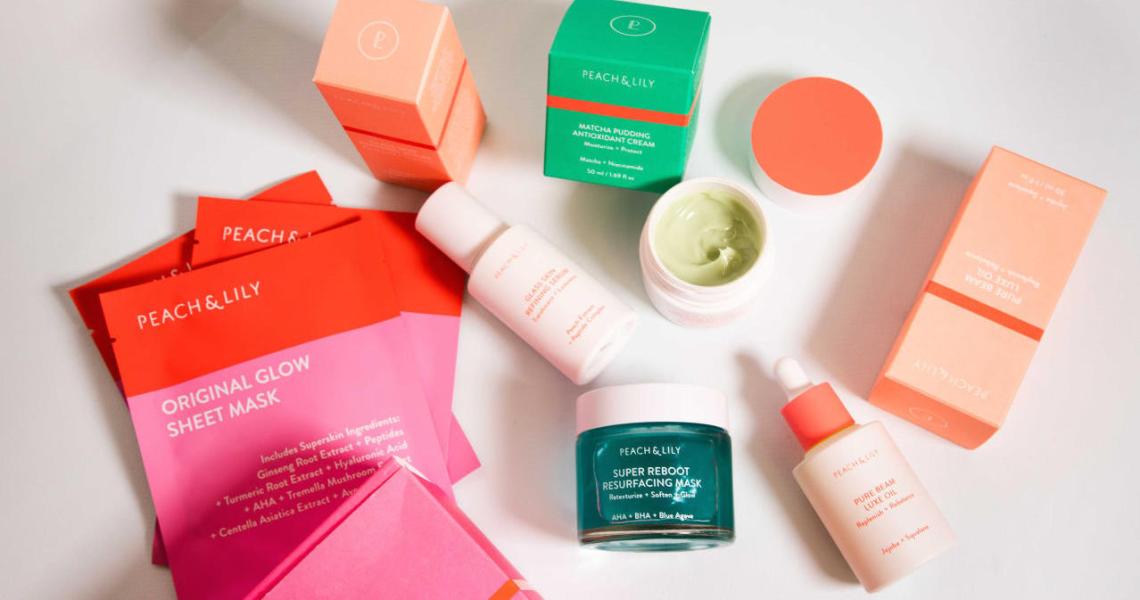Beauty retailers have started to open up and sketch a vision of what the new in-store experience looks like, but changes to in-store education between brand field teams and sales associates have yet to be clarified.
Across the industry, beauty brands have had to lay off or furlough staff, and field employees have been particularly vulnerable due to store closures. In essence, their primary job responsibility of traveling to stores to educate store staff about a brand and new products was turned off. Since brick-and-mortar stores closed in March, brands including Osea, Peach & Lily and Tula have used their field teams in other parts of the business in order to retain as many full-time employees as possible. These new responsibilities, coupled with likely changes to in-store protocols set by retailers, will change the operational structure of these field teams going forward.
Peach & Lily, which sells through Ulta, retained 100% of its 10-person field team (as well as the rest of its employees), according to Alicia Yoon, Peach & Lily founder and CEO. Largely, field team employees have since been providing chat support and video consultations to customers. But others that have more technical expertise in video editing and social media and have been reallocated to help the marketing and social media departments.
Although Peach & Lily has not received any guidelines yet from Ulta, Yoon anticipates that the brand will have an extra layer of protocols, on top of Ulta’s, moving forward. For one, it may hold off on sending its field team into stores, even after Ulta invites brands back. It will be determined on a case-by-case basis depending on the store location, she said, noting that she does not anticipate that Peach & Lily will be one of the first brands to send its field team back into stores. In the meantime, Peach & Lily is revamping its education materials.
“Before it was so easy, because you could just demonstrate a product on the spot, and you didn’t have to explain the scent or texture,” she said. “Now, we’re coming up with creative ways to explain the texture — what are the right adjectives to bring the product to life?”
She said the company’s new education materials will model e-commerce product descriptions, but as people process information online differently than in-person, it will not just be a copy-and-paste regurgitation. Although field team employees are trained in verbal explanations with sales associates, the fact that they may be limited in touching people, standing next to them or even opening products limits their existing mode of operating.
Meanwhile, Venice, Calif.-based skin-care and wellness brand Osea is banking on an online portal as its future field team strategy. Osea maintains field teams for national retailers such as Bluemercury and The Detox Market, as well as professional spas. Melissa Mao, Osea chief growth officer, declined to state the size of the teams, but said many of the field members were furloughed. Those that have stayed on have been reallocated to customer service, online consultations and creating training videos for the portal, which will launch in July.
“[Coronavirus] was a disruption that allowed us to [invest] in the technology needed to support our long-term education efforts to retailers, customers and professionals,” said Mao.
The portal will ensure that retailers and spas stay updated on Osea news and products at any time. But when it comes to in-person education and training, Mao anticipates the company will send a training kit to a spa aesthetician or a retailer team, and that Osea’s lead aesthetician will be able to virtually train them digitally. She added that retail partners have not provided any clarity yet on when in-store training can resume.
“We’ll never be able to truly replace the in-store experience … but right now, where touching something is [not possible], we have to find other ways to be able to go about it,” she said.




